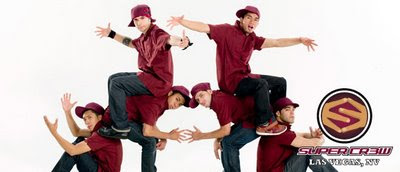Thursday, August 7, 2008
With Style: Filipinos servin up street culture
With Style: Filipino Americans and the Making of American Urban Culture
By Victor Hugo Viesca
The global popularity of rap music has shed light on the role of Filipino Americans as a significant force in the urban based culture of hip hop. This is particularly the case in the art of DJ-ing, one of the original four elements of hip hop along with rap, graffiti and breakdancing. The role of Filipino Americans in shaping and reproducing hip hop culture is most evident in their prominence as world renown DJs...(read more)
The article above by my friend Professor Victor Hugo Viesca is old school. But that's a good thing. What Victor is writing about in this 2002 article is the popularity of Filipino American DJs and the influences of Filipino Americans in urban culture in general.
The article is old school because the popularity of Filipinos in hip hop culture has now broadened way beyond DJs and turntablism. Taking a look at Filipinos' dominance in televised street dance competition, this year might as well be called "battle the Filipino." Filipino presence in hip hop culture is getting noticed- sure, ok- but Victor gives us historical context and demonstrates the impact Filipinos have been making in street culture for much of the 20th century--from the zoot suiters in the pre-WWII era to beyond.
Perhaps the bravest statement by Victor comes in the last sentence of the first paragraph:
"In fact it may be argued that if it wasn't for Filipinos' support and practice of hip hop's various elements, hip hop might have never exploded and gained the momentum that it did in the 1990s."
As a Chicano, Victor's observance of Filipino Americans in hip hop culture is refreshing because it shows that someone is testifying to Filipinos' long-term investment in and contributions to hip hop culture other then, well, ourselves. In a broader sense, Filipinos and hip hop are not usually congruent, except of course when mentioned in that one Jay-Z song or when Q-Tip shouted us out at Rock the Bells. So even though the article is a little old school (where is the new generation of Fil Am DJs?), it builds a good (middle) base to the hip hop structure that Filipinos been building. Can't wait to read about the popularity of Fil Ams servin up street dance.
So, what do you think?
Do you think hop hop might have never exploded and gained momentum in the 1990s if it wasn't for Filipinos' dedication to the culture?
Note: In no way am I claiming that Filipinos are only now getting heavily involved in hip hop culture. I'm only referring to the wider appeal we gettin. Like when Latinas and Black ladies start sweatin Pinoys strictly because of Jabba. Oh lawd! Mask me!
Subscribe to:
Post Comments (Atom)











8 comments:
i love hip hop...but i don't have any dance crew..do you have any auditons this year??..
..by the way im Maricris Arellano im only 14yrs old..and i live at Metro Manila Philippines,,plz reply at my e-mail malaPricezzA@yahoo.com
..thank you very much..and gOd bless..^^
I typically do not like these "what if" type of questions. Certainly there is more exposure to Filipinos in Hip Hop, and Viesca's work and yours is showing us that we Filipinos are major contributors.
I think Hip Hop is just too big for one people. In addition, the emcee really led the way and bboys, graf artists, and to an extent dj's seem to have been relegated to a footnote in Hip Hop's emergence into the mainstream 90s and beyond. Emceeing is still its major form and it's the mainstream one, and I don't typically see a lot of Filipinos out there doing it, as far as the mainstream goes.
hmmm...i don't know about the emcee really leading the way...
I guess its a game of what kind of "hip hop" we're talking about.
I really don't think that Filipinos necessarily "caused" the explosion of hip hop's popularity at any moment in history, but it sure helped in certain cities (my high school and middle school, it was strictly the Pinoys doing the DJ and breakin, and introducing it to other kids).
As for DJing and street dance (b-boy, choreograph), hands down, it was Pin@ys. Maybe graff writing to an extent.
Check this out circa 1992: San Jose's own Jughead Tribe,
http://www.youtube.com/watch?v=9LsGRKzBkX8
The more we breakdown the 90's Filipino party scenes, the more I know we've at least kept the dance underground and alive. It might not have been with an explicit agenda to keep Hiphop culture alive, but thats just how we expressed ourselves.
I'm actually really interested in the whole 90s housin/bboy/hiphop dance scene. If anyone is from that era holla! Let's start documenting this..
anyone recognize the DJ at the end of the Jughead vid? =)
More 90's Freshness:
http://youtube.com/watch?v=V7ItBhvpIYQ , Documentary on Dangerous Image Crew
http://www.youtube.com/watch?v=gJwhx17B_Q8 , Jughead showcase, GO 'HEAAAAAAAAD
HILEEEEEERIOUS!
"Oh lawd! Mask me!"
I'm definitely not qualified to answer this question, as I was just a baby in the 90s -- literally. But if it makes you feel any better, I (a Black lady) have always been feeling the Fil fellas. (:P)
Post a Comment